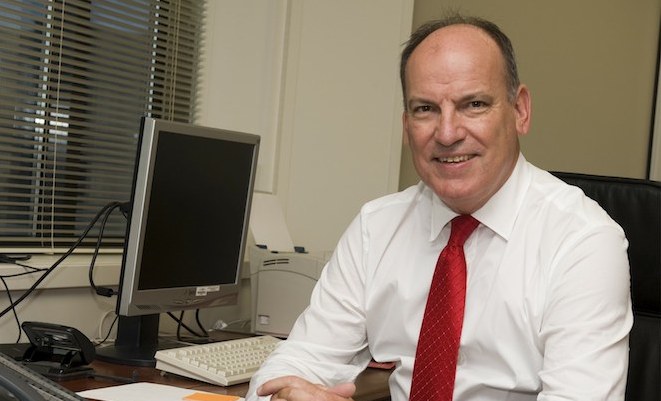
Outgoing director of aviation safety John McCormick says the Civil Aviation Safety Authority (CASA) has the respect of its global counterparts and is in better shape now than when he took up the post a little over five years ago.
McCormick is in his last week in the job after announcing in February he would not seek an extension of his contract when it expires on August 31.
The former Cathay Pacific, Qantas Airways and Royal Australian Air Force pilot says the past five and a half years has been “challenging, satisfying and at times difficult”.
However, he believes CASA is a “better and more effective air safety regulator” and one “respected by leading regulators around the world”.
“In 2014 I look at CASA and see a clearer focus on priorities, documented processes and procedures that are followed as required, better training and support for staff and an understanding that decision making must be transparent and fair,” McCormick said in his final monthly CASA Briefing note.
McCormick’s departure comes at a time when the safety regulator has faced heavy criticism.
The Aviation Safety Regulation Review (ASRR), also known as the Forsyth Report, called for substantial cultural and structural changes at CASA and for better leadership of and coordination between Australia’s aviation safety agencies.
Moreover, it said the relationship between CASA and the aviation industry was “in many cases, adversarial”.
The report, commissioned by the federal government in 2013, said the appointment of a new director of aviation safety was a chance to reform the culture of the organisation.
CASA came under fire in federal parliament for its response to the ditching of a Pel-Air aircraft near Norfolk Island in 2009.
While acknowledging CASA had its detractors, McCormick said he had encouraged and facilitated consultation with stakeholders during his time at the helm and welcomed constructive criticism.
Moreover, he said CASA made its decisions based on evidence, solid data and following sound processes and procedures that ensured fairness and transparency.
McCormick hit out against those that resorted to personal attacks when CASA ruled against them.
“I have had no problem with people putting their point of view and arguing their case as that is their right if they disagree with CASA,” McCormick said.
“But just because some people may disagree it does not mean CASA is necessarily wrong or should step away from its position.
“Sadly when some of CASA’s critics have not got their own way the debate has degenerated and become personal, which is not constructive and does nothing for aviation safety.
“It is a fact of human nature that some people will personally attack others as a way of diverting too close an examination of themselves.”
Deputy Prime Minister and minister for infrastructure and regional development Warren Truss is yet to name a successor to McCormick.
The minister was also yet to respond to the Forsyth report, although one was expected before the end of 2014.
The Australian Aviation Associations’ Forum said on August 20 the appointment of a new director of aviation safety was a chance for a fresh start for the aviation sector.
Industry “stands ready and enthusiastic to bring in a new era of enlightened regulation for aviation safety in Australia to repair the damage of recent years”, the forum’s honorary chair Chris Manning said in a statement.
















Peter
says:I cant imagine that the DAS would put forward any other view! I suspect though that most other people in the industry (and I suspect within CASA) would view the last five years as being a significant failure.
If CASA had an AOC it would not be able to keep it – the shambolic introduction of the new rule set, the big “R” approach to regulation are only a couple of examples of the failure of leadership experienced by CASA.
CASA, for the most part, has lost the respect of the people that it regulates, with individual CASA offices and individuals within those offices, going beyond compliance with the regulations and imposing personal preferences upon operators. Sadly, those personal preferences belong to people who in many cases don’t have the experience to properly form those ideas.
It is a sad situation where CASA is unable to attract quality applicants because it pays well below what would be expected by an experienced airline captain with check and training and management experience, and doesn’t offer a reasonable career path for pilots. Many experienced pilots are concerned that once they join CASA and effectively stop flying they will be unlikely to be able to return to a decent flying role.
This leaves CASA in an unenviable position without a lot of “street cred”. Certainly there are a number of well respected, very experienced pilots who are now FOI’s, but they are the exception rather than the rule.